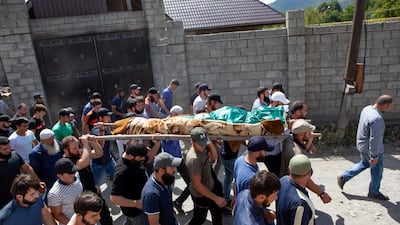Germany has expelled two Russian diplomats because of suspected state-involvement in the shooting of a Chechen separatist commander on his way to a Berlin mosque.
The expulsions are the latest accusation of a state-sponsored assassination programme levelled against Russia after the attempted killing of a former Russian spy in Britain last year.
Zelimkhan Khangoshvili, 40, an ethnic Chechen from Georgia who commanded separatist forces in the war against Russia in the 1990s, was shot three times and killed in a park in August. The attacker fled on an electric bicycle and dumped the weapon in a river, according to news reports.
Witnesses saw the murder suspect throwing the evidence away and police arrested a 48-year-old Russian.
Prosecutors said they had found several indications that he carried out the attempt with official help. The victim was on a Russian terrorist list and survived previous assassination attempts and fled to Germany in 2016.
The expulsions are the most significant diplomatic action against Russia since Britain and its allies sent home more than 150 diplomats in protest against the Salisbury nerve agent attacks.
Boris Johnson, the prime minister, said this week that the action sent a firm message to Russia not to repeat such an attack.
Russia’s ambassador to Germany Sergey Nechaev rejected the accusations in the Berlin killing, while threatening consequences for the expulsion of its diplomats.
“Such German action will have a strong negative impact on the Russian-German relations and naturally will not be left unanswered,” Mr Nechaev said.

